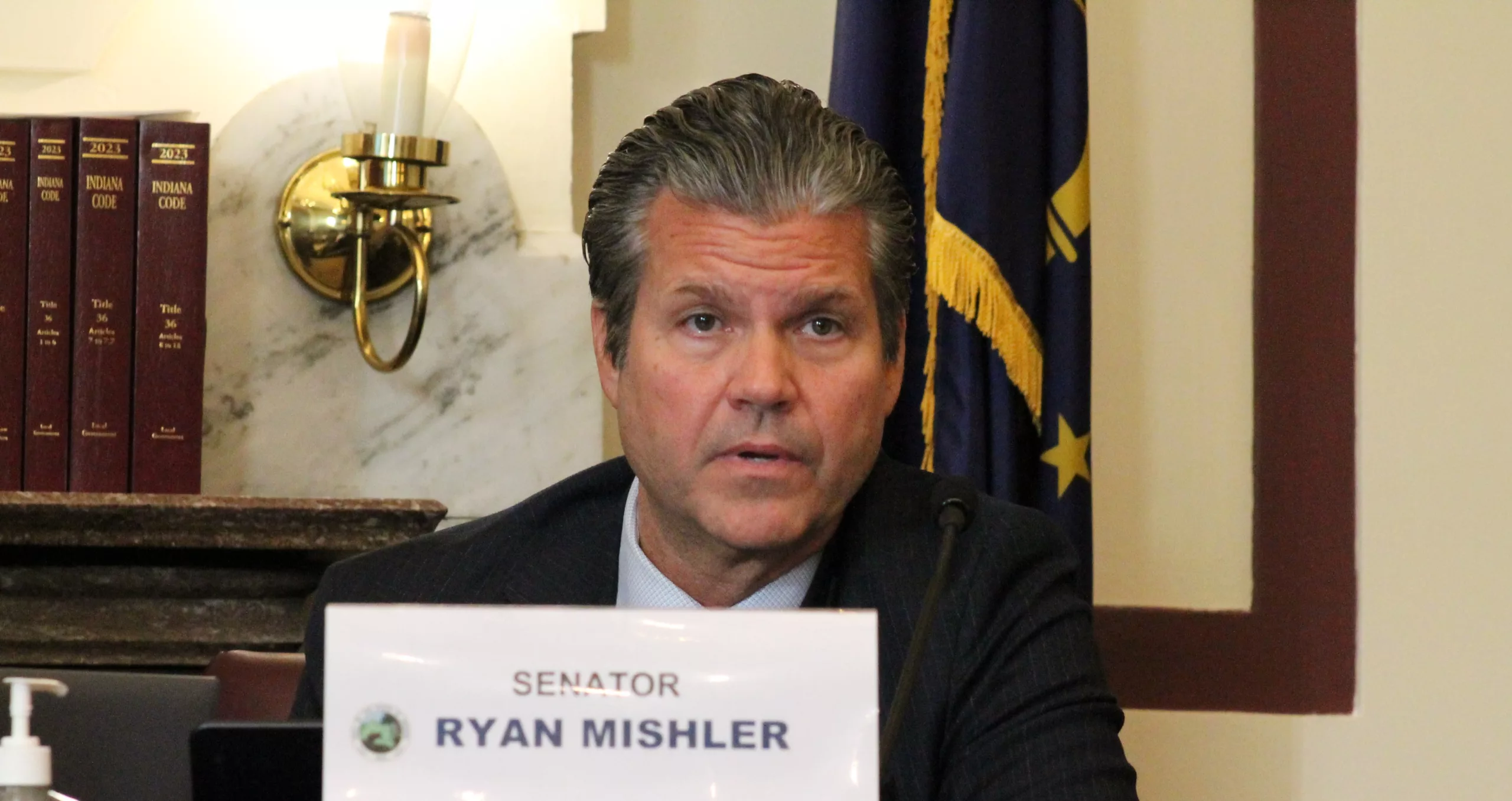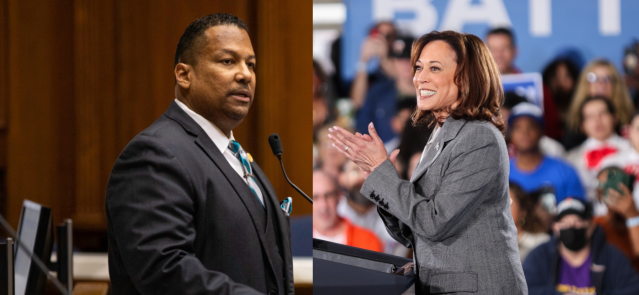Stay ahead of the curve as a political insider with deep policy analysis, daily briefings and policy-shaping tools.
Request a DemoBill limiting prior authorization dies amid concerns about rising Medicaid costs

Sen. Ryan Mishler, R-Mishawaka, speaks during a Dec. 19, 2023 State Budget Committee meeting. (Credit: Jarred Meeks)
A bill significantly restricting the use of prior authorization won’t be advancing this legislative session, amid concerns that it could impact the already ballooning costs to administer Medicaid in the state.
Under Senate Bill 3, insurance providers would have been prohibited from requiring insurance approval for emergency services — such as when someone needs their appendix removed — routine care and prescription drugs.
It would also prohibit insurance companies from requiring prior authorization on more than 1% of services and give health care providers a yearlong break from prior authorization requirements if their prior authorization approval rating the previous year was above 80%.
The bill never made it to a floor vote, failing to advance out of the Senate Appropriations Committee. The bill’s demise this early in the legislative session is unusual because Senate Republicans had labeled it as one of their top priorities.
Sen. Ryan Mishler, chair of the Senate Appropriations Committee, said he didn’t give Senate Bill 3 a hearing before the deadline to do so because he had questions about its potential financial impact to the state.
Opponents of the bill warned that decreasing prior authorization could lead to unnecessary medical procedures, increasing over all health care costs. A legislative fiscal analysis of the bill noted that the state could have to pay more money if a decrease in prior authorization leads to state employees or Medicaid users utilizing more medical care.
Republican lawmakers have been leery of any legislation that could increase the Medicaid costs to the state this legislative session. Because of a forecasting error, the state will have to spend almost $1 billion more than expected to cover Hoosiers’ Medicaid expenses over the biennium, state officials announced in January.
Lawmakers also typically don’t prefer to pass bills that could fiscally impact the state during a non-budget writing legislative session.
“We’re being very cautious with our Medicaid issue right now,” Mishler told State Affairs. “If there were any questions about any costs in that bill, we need to be very sure before we move it. So I think the responsible thing to do was to just pull it until we get those questions answered.”
Similar bill language to Senate Bill 3 could pop up elsewhere before the end of the legislative session, but it’s unlikely given the concerns Mishler has. He said lawmakers will continue to “keep digging into” the issue, but that could just mean it’ll be studied during an interim study committee over the summer.
Contact Kaitlin Lange on X @kaitlin_lange or email her at [email protected].
Facebook @stateaffairsin
Instagram @stateaffairsin
LinkedIn @stateaffairs
4 things to know about Braun’s property tax proposal
Sen. Mike Braun, the Republican candidate for Indiana’s governor, released a plan for overhauling property taxes Friday morning that would impact millions of Hoosiers, Indiana schools and local governments. “Nothing is more important than ensuring Hoosiers can afford to live in their homes without being overburdened by rising property taxes driven by rapid inflation in …
Bureau of Motor Vehicles looks to add new rules to Indiana’s driving test
The Bureau of Motor Vehicles wants to amend Indiana’s driving skills test, putting “existing practice” into administrative rule. Indiana already fails drivers who speed, disobey traffic signals and don’t wear a seatbelt, among other violations. Yet the BMV is looking to make the state’s driving skills test more stringent. A proposed rule amendment looks to …
In Indianapolis, Harris says she’s fighting for America’s future
Vice President Kamala Harris, the presumptive Democratic presidential nominee, told a gathering of women of color in Indianapolis on Wednesday that she is fighting for America’s future. She contrasted her vision with another — one she said is “focused on the past.” “Across our nation, we are witnessing a full-on assault on hard-fought, hard-won freedoms …
Indiana Black Legislative Caucus endorses Harris, pledges future support
The Indiana Black Legislative Caucus unanimously voted Wednesday to endorse Vice President Kamala Harris’ presidential run and will look at ways to assist her candidacy, the caucus chair, state Rep. Earl Harris Jr., D-East Chicago, told State Affairs. The caucus is made up of 14 members of the Indiana General Assembly, all of whom are …




